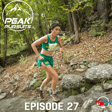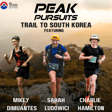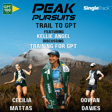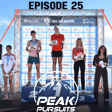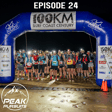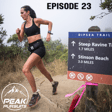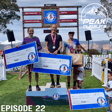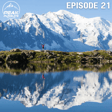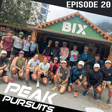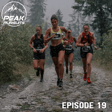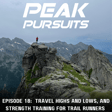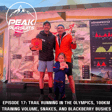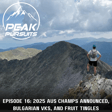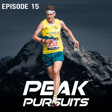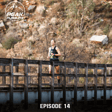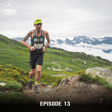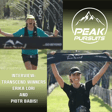
Episode 26: Caffeine, Carbs, a Downhill VK, and Selection Policy Chat.
Welcome to Episode 26 of Peak Pursuits, your ultimate podcast for everything trail running in Australia. This week’s episode is hosted by Brodie Nankervis, Jess Jason and Vlad Ixel and starts a little differently with each of them talking through their nutrition and gear chat, before diving into training, listener questions, news and race results for the week.
Start - 27:45 :- Nutrition and Gear Chat
With the same championship race of APTRC South Korea coming up for all three hosts, they start this week with a discussion on their usual training nutrition, and how they will adapt that for the race in South Korea. Then hear about each of their shoe and gear choices to navigate the heat and the stairs of the course!
27:45 - 37:20 :- Training Talk
The team briefly take you through some of their key sessions of the week, which for Brodie included a 14:44 downhill VK!
37:20 - 53:10 :- Listener Questions
Listener questions this week tied into training so the team runs straight into talking about how they are training for stairs, including Jess revealing that her win at Hounslow came after NO specific stair training yet but how she has adapted that now for APTRC. The next listener question tackles all things caffeine in training and racing.
53:10 - 1:00:00 :- Trail Running News
One year out from the World Mountain and Trail Running Championships in Canfranc, Spain, the New Zealand federation have announced their selection policy, which prompts a discussion around the hypotheticals of what the Australian selection policy should look like and the timeline for selection.
1:00:00- 1:12:45 :- Race Results
We then cover a few Aussie races that went down over the weekend:
Macedon Trail Run: https://my.raceresult.com/311897/
Sydney Backyard Ultra: https://my.raceresult.com/309690/live
UTMB Nice: https://nice.utmb.world/results?year=2024&raceUri=32444.nicecoted-azurbyutmb-roubion-nice-100k.2024
Ianthon SkyRace Thailand: https://www.timingconnect.com/event/SKY2024/SKY30/participant
1:12:45 - End : What’s coming up
Lastly, we do a quick run through of the upcoming trail races around the country and what is coming up for us.
Thanks for tuning in to Peak Pursuits! Connect with us on Instagram @peakpursuits.pod to share your thoughts, questions, and your own trail stories. Until next time, keep hitting the trails and chasing those peak pursuits!
Jess: @jess.jason95
Brodie: @brodienank
Vlad: @vladixel
Music from #Uppbeat (free for Creators!):https://uppbeat.io/t/mood-maze/trendsetter
License code: K08PMQ3RATCE215R
